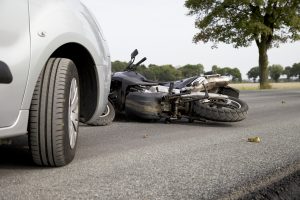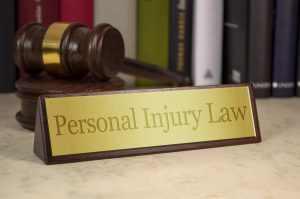Florida Concert Injuries May be Compensable if Negligence is Shown
 Droves of music-lovers flock to concerts and music festivals because they thrive on the rush of shared energy and musical collaboration. But the presence of so many bodies in close proximity can have deadly consequences, as we saw recently at the Travis Scott Astroworld Festival tragedy in Houston, TX. Crowd surge has been cited in the deaths of at least 9 people and the serious injuries of dozens more. Mounting lawsuits against the performer, the venue, and the organizers are asserting negligence resulting in the concert injuries and deaths.
Droves of music-lovers flock to concerts and music festivals because they thrive on the rush of shared energy and musical collaboration. But the presence of so many bodies in close proximity can have deadly consequences, as we saw recently at the Travis Scott Astroworld Festival tragedy in Houston, TX. Crowd surge has been cited in the deaths of at least 9 people and the serious injuries of dozens more. Mounting lawsuits against the performer, the venue, and the organizers are asserting negligence resulting in the concert injuries and deaths.
Scott’s performances are known to be marked by rowdiness bordering on danger, and the singer has even been arrested twice in the past for encouraging people to rush the stage in direct defiance of public safety orders. Among the Astroworld injury claims filed so far, plaintiffs accuse Scott of having actively encouraged and fomented dangerous behaviors leading to death and serious injury. A criminal investigation into the deaths is also underway. Although it’s early in the investigation/discovery process, the general consensus by crowd safety experts appears to be that these concert injuries were preventable.
As longtime Florida injury lawyers and wrongful death attorneys, we recognize that while this is one of the most significant concert injury cases in recent memory, it’s sadly far from the first. In fact, previous incidents are precisely why large venues and product companies typically have a long list of stringent safety protocols that must be followed. Most notably, National Fire Protection Association standards have provisions that include things like:
- One crowd manager per every 250 people – at the very least.
- Expected occupant loads in excess of 6,000 require a life safety evaluation that assesses safe egress and danger mitigation for large numbers, given expected crowd behaviors, nature of the event/participants, potential severe weather conditions, hazardous materials incidents, medical emergencies, civil disturbances, etc.
- Emergency Action Plans that include a minimum of 18 different considerations, such as building details, staff training, evacuation procedures, designated staff responsible for emergency duties (and proper training), drills, etc. These EAPs should be approved by the authority having jurisdiction.
- In areas of assembled occupancies of up to 10,000 square feet, the occupant load shouldn’t exceed one person for every 7 square feet.
It is not immediately clear whether these provisions were followed at Astroworld, but some safety experts have gone on record to opine they likely weren’t. Standing-room only setups are known to be among the most dangerous and deadly crowd configurations at large events. It’s imperative these areas don’t get overpacked and that there are specially-trained crowd managers and medical teams on hand. Throngs of this size are supposed to be constantly monitored by these specialists, and issues promptly and properly addressed before problems pass the point of no return. Continue reading





 Florida Personal Injury Lawyer Blog
Florida Personal Injury Lawyer Blog



 The potential for serious Florida nursing home injury rises exponentially when facilities are poorly staffed. A recent report from the
The potential for serious Florida nursing home injury rises exponentially when facilities are poorly staffed. A recent report from the  Taking legal action is sometimes the best strategy following a Florida injury in a car crash, slip-and-fall, or medical mistake. However, doing so is typically inadvisable without the aid of a Naples injury lawyer. The first step in that process may be something called a “free consultation.”
Taking legal action is sometimes the best strategy following a Florida injury in a car crash, slip-and-fall, or medical mistake. However, doing so is typically inadvisable without the aid of a Naples injury lawyer. The first step in that process may be something called a “free consultation.” In Florida motorcycle accidents, there can be numerous defendants – sometimes including those who weren’t actually behind the wheel. In a recent motorcycle accident lawsuit that settled mid-trial for $1 million, the defendants included the driver as well as the owner of the vehicle, which in this case was the driver’s employer, a commercial cleaning company. They were held responsible by a legal doctrine called vicarious liability.
In Florida motorcycle accidents, there can be numerous defendants – sometimes including those who weren’t actually behind the wheel. In a recent motorcycle accident lawsuit that settled mid-trial for $1 million, the defendants included the driver as well as the owner of the vehicle, which in this case was the driver’s employer, a commercial cleaning company. They were held responsible by a legal doctrine called vicarious liability. Every Florida injury lawsuit is different, and the law is always evolving. That’s why when you ask any lawyer a seemingly straightforward question, you almost always get: “It depends.”
Every Florida injury lawsuit is different, and the law is always evolving. That’s why when you ask any lawyer a seemingly straightforward question, you almost always get: “It depends.” Florida product liability claims can be the subject of complex legal battles, often owing to the difficulty in establishing the chain of commerce.
Florida product liability claims can be the subject of complex legal battles, often owing to the difficulty in establishing the chain of commerce. When Florida personal injury lawyers take on a case, they’re frequently successful at negotiating a settlement – often before a lawsuit is necessary and long before the pre-trial or trial phase.
When Florida personal injury lawyers take on a case, they’re frequently successful at negotiating a settlement – often before a lawsuit is necessary and long before the pre-trial or trial phase. Food delivery services, such as Uber Eats, Grubhub, and DoorDash, have been doing booming business in recent years. The online food delivery industry is now generating
Food delivery services, such as Uber Eats, Grubhub, and DoorDash, have been doing booming business in recent years. The online food delivery industry is now generating  When it comes to civil litigation, there are many similarities and differences between Florida personal injury and wrongful death cases. As longtime South Florida injury attorneys, we will do our best to explain some of these – and why they matter.
When it comes to civil litigation, there are many similarities and differences between Florida personal injury and wrongful death cases. As longtime South Florida injury attorneys, we will do our best to explain some of these – and why they matter. Large truck crashes are on the rise throughout the U.S., according to a new report by federal safety regulators. This news comes just as trucking industry lobbyists have begun pushing hard for relaxed safety rules on things like hours of service and CDL age requirements to combat supply chain snags and driver shortages.
Large truck crashes are on the rise throughout the U.S., according to a new report by federal safety regulators. This news comes just as trucking industry lobbyists have begun pushing hard for relaxed safety rules on things like hours of service and CDL age requirements to combat supply chain snags and driver shortages.






